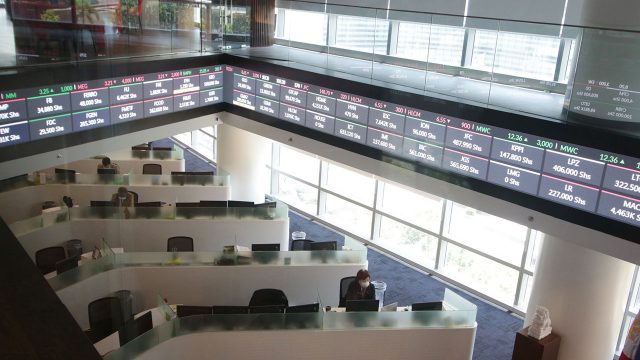PRESIDENT Ferdinand R. Marcos, Jr. called on his fellow Southeast Asian leaders to press rich nations to fulfill their climate commitments, noting that poorer countries have been dealing with disasters that threaten their food security.
The call to action must be made at the United Nations-led climate change conference in December, Mr. Marcos said during the plenary session of the ASEAN Summit in Jakarta.
“At the upcoming COP28 (in Dubai), ASEAN must call on developed countries to heighten the implementation of their commitments,” he said. “Their commitments include climate finance, technology development and transfer, and capacity building in order to drive ASEAN’s capabilities to prevent, mitigate, manage and adapt to the impacts of climate change.”
Mr. Marcos said his focus remains on encouraging international cooperation to make ASEAN climate-smart and disaster-ready.
Climate change is threatening Philippine agriculture, which must absorb damage from an average of 18-20 typhoons a year.
Super Typhoon Doksuri and the southwest monsoon have caused P1.94 billion worth of agriculture damage, with rice accounting for P950 million of the total.
“In achieving food security, we must build on cooperation that will harness the transformative potential of our agricultural sector to ensure that food production is responsible and will be of benefit for future generations,” Mr. Marcos said.
Storms, flooding, and prolonged drought may result in around $124 billion in losses to the Philippine economy between 2022 and 2050, research firm GHD estimated last year.
Mr. Marcos, who is leading a shift towards green energy, has yet to declare a climate emergency, which would authorize the government to mobilize funds to step up climate mitigation efforts.
The House of Representative made such a declaration in 2019, but Greenpeace said last year that the National Government (NG) has yet to “follow through.”
Neither have the US or China made such declarations. The two countries account for 41.89% and 34.75% of world gross domestic product in nominal and purchasing power parity terms, respectively, in 2021.
Mr. Marcos also called on the region’s leaders to maximize the benefits from the Regional Comprehensive Economic Partnership and promote digital-economy cooperation.
Terry L. Ridon, a public investment analyst and convenor of think tank Infrawatch, said the summit is an opportunity for Mr. Marcos to boost ties with non-traditional partners amid mounting economic challenges and in the face of an increasingly belligerent China, which has abandoned some of its commitments to the Philippines’ flagship infrastructure projects.
Mr. Marcos needs to seal partnerships in rice production as the Philippines deals with the commodity’s rising prices and prepares for a possible shortage during the worst of the El Niño, he said.
He said Manila can collaborate with Indonesia, which currently chairs the regional bloc, to accelerate its shift to renewable energy.
“Indonesia and the Philippines should develop a joint nickel policy to help develop and protect this shared mineral resource amid technological developments in the renewables sector,” he said.
Mr. Marcos should also invite ASEAN conglomerates to join Public-Private Partnerships projects, including the rehabilitation of the Philippine capital’s main airport and the development of the Metro Manila busway.
“The summit can be a platform to call on other bilateral and multilateral partners to take another look at abandoned China projects,” he said, “and determine whether they can continue these projects as designed or proposed or (whether) they will require another round of design and planning.”
Transport officials have said the Export-Import Bank of China (China Eximbank) has yet to confirm whether it will approve a P142-billion loan for a railway to Bicol.
The Duterte government in February 2022 awarded to China Railway Design Corp. a contract to build the Philippine National Railways (PNR) South Long-Haul project.
Transportation Undersecretary Cesar B. Chavez said the Departments of Transportation and Finance met with Chinese Embassy officials in Manila earlier this year to discuss the loan but they “were given no clear direction” on the loan’s status.
He was speaking at a House appropriations committee hearing.
There have been calls to cancel infrastructure projects that China has promised to fund in light of its aggressive actions within the Philippine exclusive economic zone in the South China Sea.
Citing the foreign-assisted projects listed in the 2024 Budget of Expenditures and Sources of Financing, Mr. Ridon said six major infrastructure projects are currently depending on Chinese loans, the most expensive of which is the PNR South Long Haul Project, with a price tag of P175.3 billion.
There are also several loan agreements for “flagship projects” as designated by the Department of Finance. They include the loan agreement for the New Centennial Water Source-Kaliwa Dam Project, the Chico River Pump Irrigation Project, which had been due for completion in 2022, Mr. Ridon said.
He also cited the P20-billion Safe Philippines project aimed at installing at least 12,000 closed-circuit television cameras in Metro Manila and Davao City.
Before the Department of Interior and Local Government canceled the project, China International Telecommunications and Construction Corp. had signed a loan contract with the government in 2018.
“Now is an opportune time for Congress to review upcoming and ongoing infrastructure projects that will be largely financed by Beijing,” Mr. Ridon said. “Let the deliberations on the national budget be a venue for our legislators to show that they will not allow Beijing to continue currying favor through funding infrastructure projects, while at the same time rapidly creeping into our territory and violently driving out our fisherfolk and our Coast Guard from our seas.” — Kyle Aristophere T. Atienza








